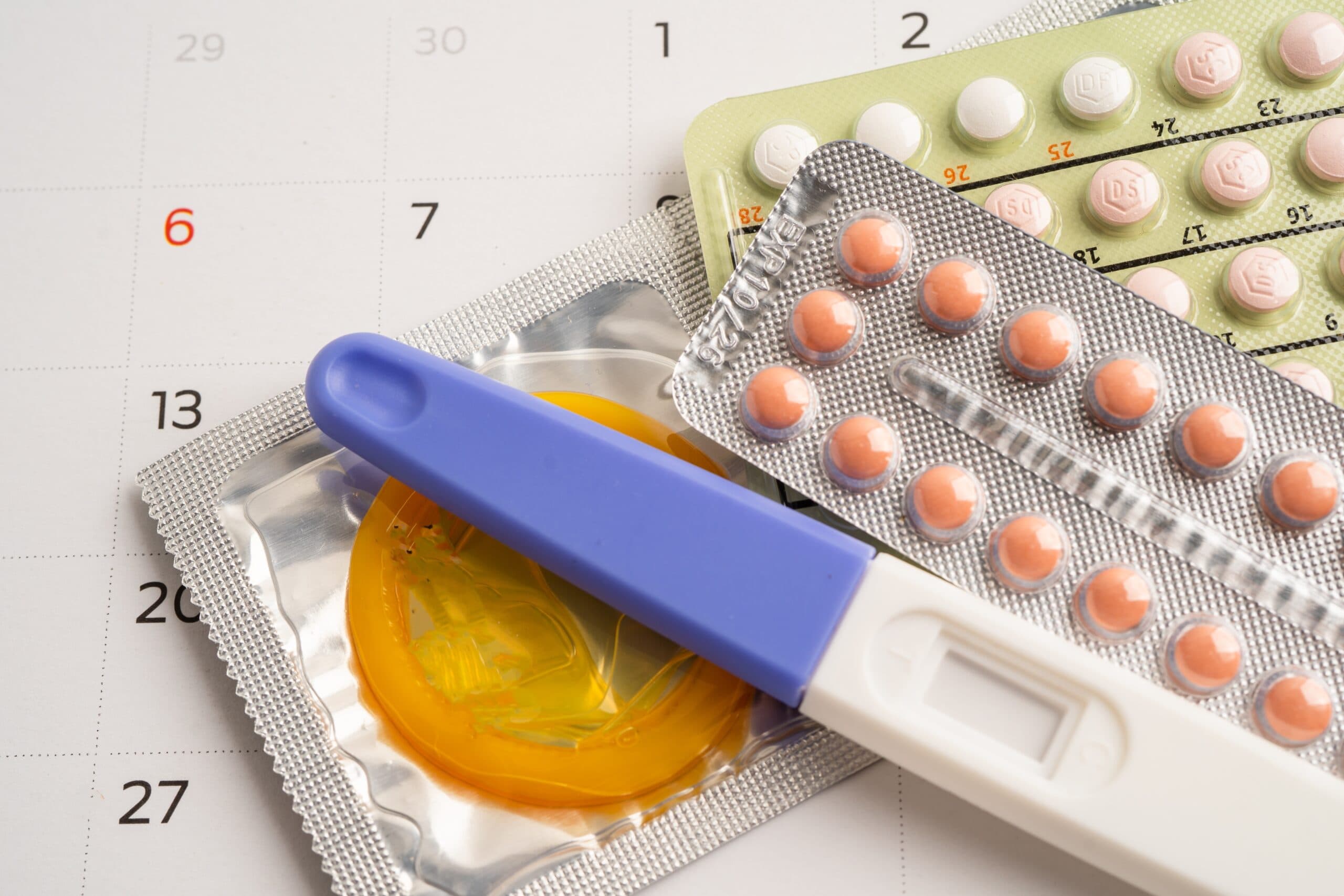Birth Control Beyond the Binary: A Queer Guide to Contraception

Contraception — also known as birth control — is any method or device that helps prevent pregnancy during sex where sperm and eggs could meet.
Queer sex is as diverse as the people having it, and for some of us, pregnancy prevention is part of the picture. Some types of contraception can also be used for other reasons, like managing periods, reducing cramps, or treating conditions such as endometriosis or acne.
Most methods (except condoms, spermicides, and emergency contraception) require a prescription from a GP or nurse. The key is finding a healthcare provider you trust — someone you feel comfortable talking with about your body, relationships, and needs.
This guide offers a quick overview of the most common options available in Australia, whether you’re after a quick refresher or exploring new options. For more detailed information on each option, visit Sexual Health Victoria.
Hormonal Methods:
These methods are designed for folks with uteruses and ovaries who want to prevent pregnancy. They might also help manage hormone levels for other reasons — like painful or heavy periods, PCOS, or acne.
Hormonal contraception can change how often and how much you bleed during your period. Let your doctor know if you’re interested in reducing or stopping period bleeding – some types of contraception are better at this than others.
Pills
Daily oral contraceptives that prevent ovulation. These are best for people who can take medication at the same time each day. Includes:
- Combined pill (oestrogen + progestogen)
- Progestogen-only pill (mini pills)
Rings
A soft plastic ring inserted vaginally each month that releases hormones to prevent pregnancy. You can insert and remove it yourself, but timing is important. Your healthcare provider can guide you based on your menstrual cycle.
Shots
A hormone injection (eg. Depo Provera) taken every 12 weeks that suppresses ovulation. It’s a low-maintenance method, but fertility may take 6–12 months to return after stopping. Might not suit those planning to conceive soon.
Long-Acting Reversible Contraceptives (LARCs):
Sometimes called “set and forget” options, LARCs like implants or IUDs offer long-term, low-maintenance pregnancy prevention, but they will need to be inserted by a clinician.
LARCs are also among the most effective contraception options — because they don’t rely on daily or routine action, there’s less room for human error.
IUDs (Intra-Uterine Devices, AKA “the coil”): A small device inserted by a healthcare professional into the uterus. Includes:
- Hormonal IUD (e.g., Mirena, Kyleena): Inserted by a healthcare professional into the uterus; can reduce or stop periods. Lasts 5–8 years.
- Copper IUD: A hormone-free option, potentially suitable for those who prefer or need to avoid hormones. Might cause heavier periods. Lasts 5–10 years.
Implants (AKA “the rod” or “the stick”): A small rod (i.e. ‘Implanon’) inserted under the skin of the upper arm by a clinician. Releases a very low dose of progesterone-only hormone over several years. Lasts 3 years.
Barrier Methods:
Condoms
Condoms are the only type of contraception that also protects against sexually transmitted infections (STIs).
- External Condoms: Worn over a penis to prevent sperm from reaching an egg.
- Internal Condoms: Worn inside the vagina to prevent sperm from reaching the egg or inside the vagina or anus to prevent transmission of certain sexually transmitted infections.
Diaphragms (AKA “Caya”)
A shallow silicone cup inserted into the vagina before sex to block sperm from reaching the uterus and removed after sex. Used with spermicide gel.
Spermicide
On its own, spermicide isn’t as effective as other contraceptives and works best when used with barrier methods like condoms or diaphragms.
The active chemicals in spermicide immobilise or kill sperm, reducing the chance of pregnancy. It comes in the form of gels, foams, creams or suppositories that are placed inside the vagina/front hole before sex.
Emergency Options (Plan B)
These are designed for people with uteruses and ovaries who want to prevent pregnancy after unprotected sex. They work by stopping ovulation, not by interrupting or aborting an existing pregnancy.
- Emergency pills: In Australia, you can access emergency contraception pills at most pharmacies without a prescription, from your GP or a local sexual health clinic. It’s important to access these as soon as possible, but some pills can be taken up to five days (120 hours) after unprotected sex.
- Copper IUD: Can be used as emergency contraception if inserted within 5 days by a trained healthcare professional. Once inserted, it works as long term contraception.
Permanent Contraception
- Tubal ligation, vasectomy or hysterectomy: Surgical options for people who are sure they don’t want a pregnancy in the future.
Fertility Awareness Method (FAM)
This method involves tracking your body’s natural signs of fertility like basal body temperature, cervical mucus changes, and cycle length. These are used to work out when you’re most and least likely to get pregnant.
- How it’s used: People avoid sex that could lead to pregnancy, or use condoms, during fertile days.
- It’s less reliable than other methods. Menstrual cycles can be unpredictable and it requires daily tracking. It’s probably not a great option unless your cycles are regular and you can commit to tracking your body’s symptoms
- Other uses: FAM can also help you understand your cycles better, plan for pregnancy, or identify changes to share with a healthcare provider.
FAQS
Does using contraception prevent STIs?
Most contraception methods don’t protect against sexually transmitted infections (STIs).
Barrier methods (like external condoms, internal condoms, dental dams, and gloves) can help reduce the risk of STIs during all kinds of sex: vaginal, anal, and oral, as well as when sharing sex toys.
You can also reduce the chance of infection by avoiding the transfer of fluids from one body part to another (e.g. anal area to vagina/front hole).
Condoms worn over a penis also have the added benefit of preventing pregnancy if that’s relevant for you and your partner(s).
Using both a barrier method and another form of contraception (like the pill or an IUD) is sometimes called dual protection. It’s a good idea if you’re looking to prevent both pregnancy and STIs.
Do I still need to use contraception if I’m taking gender affirming hormone therapy (GAHT)?
GAHT is not an effective form of contraception.
- If you’re a person with a uterus taking testosterone, you’re still able to get pregnant — even if your periods have stopped or become irregular.
- If you’re a person with testes taking oestrogen or other GAHT, you can still get someone else pregnant.
Birth control options can be tailored to work alongside your GAHT. It’s worth having a chat with a clinician who understands both contraception and gender-affirming care. They can help you find a method that aligns with your body, your goals, and your overall health.
Will hormonal contraceptives affect my testosterone-based gender affirming hormone therapy (GAHT)?
Testosterone doesn’t reduce the effectiveness of birth control, and contraceptives won’t interfere with your hormone therapy.
Even if you prefer to use a birth control method without estrogen, you still have plenty of options -you can choose from IUDs, implants, injections, or progestogen-only pills. But if you do choose contraception with estrogen, it won’t impact your GAHT.
What should I expect from the doctor’s appointment?
If you’re heading in to see a clinician about contraception, there’s a few things that are handy to think about beforehand.
- Your general health history and lifestyle
- Your sexual practices and partners
- Whether you’re thinking about having kids someday – or not at all
- Any past experiences with contraception (what worked, what didn’t, any side effects)
- Any preferences or boundaries you already know about (e.g. no daily pills)
It’s also totally okay (and helpful!) to talk about how your gender, sexuality, or past experiences shape what you need from birth control. The more your provider knows, the better they can help you find something that actually works for you.
What should I do if I get side effects after starting contraception?
Everyone’s body reacts differently to contraception, and some people experience side effects — physical, emotional, or both. These might include changes in mood, bleeding patterns, weight, libido, or energy levels.
If something feels off, here’s what to do:
- Track symptoms: Note down what you’re experiencing and when.
- See a queer-affirming provider: If possible, speak to someone who understands your identity, listens without judgment, and doesn’t dismiss your concerns.
- Explore alternatives with your clinician: There are many types — different hormones, doses, or hormone-free options. You don’t have to stay on something that makes you feel worse.
Where to
find support
Looking for someone to talk to?
Find peer groups, community organisations and referral pathways for LGBTIQ+ women and gender diverse people.




